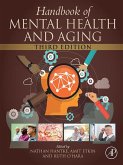Recent studies have shed light on the complex interplay between age-related neurobiological changes and cognitive function. Factors such as lifestyle choices, dietary habits, and cognitive stimulation have been identified as potential modulators of cognitive aging. (Devarshi et al., 2023) While age-related cognitive decline is an inevitable process, emerging evidence suggests that targeted interventions can help maintain and even enhance cognitive abilities in older adults.
One promising approach to combating cognitive aging is the implementation of non-invasive brain stimulation techniques. These methods, such as transcranial magnetic stimulation and transcranial direct current stimulation (tDCS), have shown promising results in improving various cognitive domains, including memory, attention, and executive function, in older adults. Additionally, cognitive training programs that engage individuals in mentally stimulating activities have demonstrated the potential to delay the onset of cognitive decline and improve overall cognitive performance. (Park & Festini, 2016)
Furthermore, the interplay between physical activity and cognitive function has garnered increasing attention. Studies have suggested that regular physical exercise may enhance neuroplasticity, the brain's ability to adapt and reorganize itself, thus potentially mitigating age-related cognitive decline. (Williams & Kemper, 2010)
Dieser Download kann aus rechtlichen Gründen nur mit Rechnungsadresse in A, B, BG, CY, CZ, D, DK, EW, E, FIN, F, GR, H, IRL, I, LT, L, LR, M, NL, PL, P, R, S, SLO, SK ausgeliefert werden.
Hinweis: Dieser Artikel kann nur an eine deutsche Lieferadresse ausgeliefert werden.









